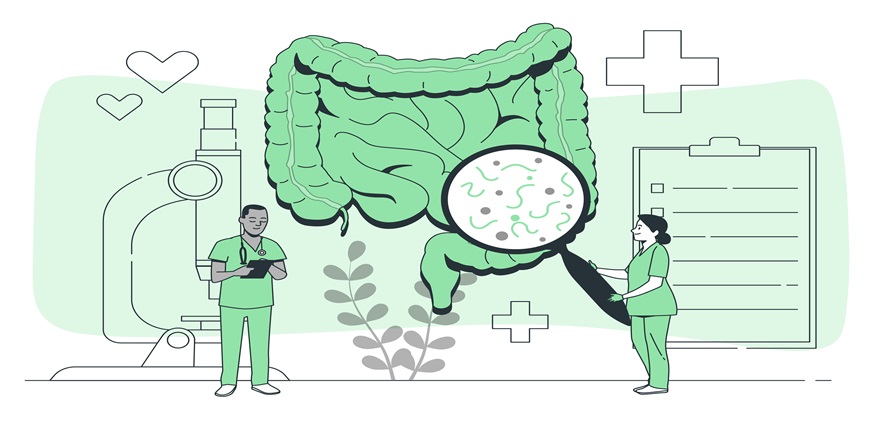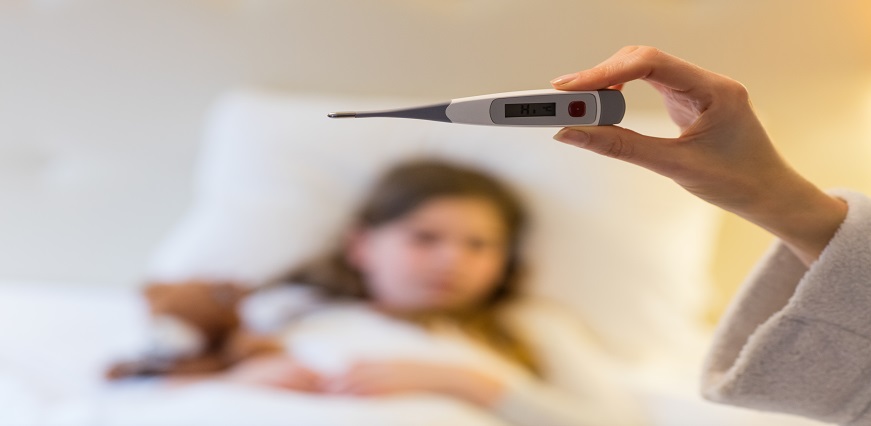





No lab centers are available in this city

Max Lab
Apr 25, 2024
Gastrointestinal issues are conditions or disorders that affect the stomach or gastrointestinal system. This leads to symptoms like abdominal pain, indigestion, nausea, bloating, vomiting, or changes in bowel habits. These symptoms of gastric problems are caused due to infections, inflammation, lifestyle factors, dietary choices, medications, or underlying medical conditions. Some of the common examples of gastrointestinal problems include GERD, diarrhoea and colorectal cancer.
Following are some signs and symptoms which are common among most gastric issues: -
Most gastrointestinal issues can be treated or prevented, but some have unidentified causes, due to which only their symptoms can be managed. One example of such a digestive system disorder is Crohn’s disease.
Gastrointestinal problems can affect a person’s gastrointestinal tract, which starts from the mouth to the anus. The two types of such problems include functional and structural conditions. There are many factors that cause such problems, which include, dietary factors, lifestyle as well as psychological factors. Below is a brief account of some of the most common gastrointestinal diseases and disorders, as well as their symptoms and treatments. Read below:
Hemorrhoids
It is one of the common gastrointestinal issues which is caused by straining during bowel movements, chronic constipation, pregnancy, and diarrhoea. It is a colorectal condition in which a person’s haemorrhoids develop as their veins get dilated in their anal canal.
Some of the symptoms of this gastrointestinal problem include:
For the treatment of this gastrointestinal problem, one can consult a healthcare provider to use ligating bands to eliminate the vessels, or they may remove them surgically. Only some people need surgery for this issue if they have very large, painful and persistent haemorrhoids. At times, external haemorrhoids can get worse after straining, because of which the external hemorrhoidal veins burst and blood clots form under the skin. The treatment for this condition includes removing the clot and vein or removing the haemorrhoid itself.
Anal fissures
An anal fissure is a structural gastrointestinal tract disease identified by splits or cracks in the lining of the anus. It is caused due to very hard or watery stools. The crack in the anal lining exposes the underlying muscles, which get irritated from exposure to stool. Some of the common causes of anal fissures are chronic constipation, obstructed defecation syndrome, penetration, and infant dyschezia. The symptoms of this gastrointestinal problem include burning pain, bleeding, and spasms after bowel movements. Prescription of pain medicine, dietary fibre to reduce the occurrence of bulky stools and sitz baths are some of the common treatment methods for this gastrointestinal tract disease. If these treatments are not effective for the pain, lateral internal sphincterotomy might be needed.
Irritable bowel syndrome
Irritable bowel syndrome is also known as spastic colon. The symptoms of this gastric problem can range from mild to severe, depending on the underlying cause. In this condition, a person’s intestinal muscles contract abnormally. Irritable bowel syndrome can be triggered by certain medicines, emotional stress and foods. The symptoms of this digestive problem are:
Some of the suggestive treatments for this digestive issue are: -
Crohn’s disease
Crohn’s disease is a digestive system disorder which causes swelling in a person’s digestive tract. This is a lifelong condition, but it has treatments to manage its symptoms. Its treatment includes medicines for reducing inflammation and calming immune responses. Treating the inflammation can improve the long-term outcomes of this disease. In other cases, one may also need treatments to manage some specific symptoms, like pain and diarrhoea. The symptoms of this gastric problem include:
Some of the other additional signs and symptoms of this stomach problem include abdominal pain, diarrhoea, weight loss, and rectal bleeding.
One can prevent getting affected by gastric problems by taking care of certain risk factors including dietary factors. If a person has a low-fibre diet which means an insufficient intake of fibre-rich foods, they must add some items to their daily diet. Some of them are fruits, vegetables, and whole grains. Besides this, one can decrease the consumption of spicy, greasy, or fatty foods. This is because they irritate the stomach lining and can trigger symptoms of indigestion or acid reflux.
If one is seriously affected by gastric issues, one must immediately consult a healthcare provider for better and timely treatment.












Sign up takes less than 60 secs and gives you access to your offers, orders and lab tests.
Looks like you are not registered with us. Please Sign up to proceed
OTP will be sent to this number by SMS
We have successfully received your details. One of the agents will call you back soon.
 To reach our help desk call 9213188888
To reach our help desk call 9213188888
No Lab Centers are available in this city
Looks like you are not registered with us. Please Sign up to proceed
OTP will be sent to this number by SMS
Not Registered Yet? Signup now.Looks like you are not registered with us. Please Sign up to proceed





 7982100200
7982100200.png)
Comments